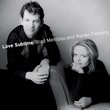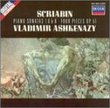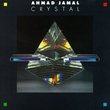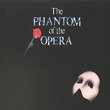| All Artists: Yo-Yo Ma Title: Dvorak: Cello Concerto; Silent Woods; Rondo Members Wishing: 0 Total Copies: 1 Label: Sony Classical Release Date: 12/29/2009 Genre: Classical Styles: Historical Periods, Modern, 20th, & 21st Century, Instruments, Strings Number of Discs: 1 SwapaCD Credits: 1 UPC: 074644220629 |
Search - Yo-Yo Ma :: Dvorak: Cello Concerto; Silent Woods; Rondo
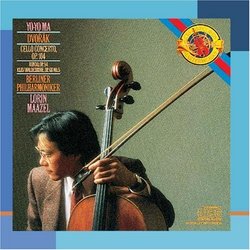 | Yo-Yo Ma Dvorak: Cello Concerto; Silent Woods; Rondo Genre: Classical
Dvorak: Cello Concerto; Silent Woods; Rondo / Yo-Yo Ma ![header=[] body=[This CD is available to be requested as disc only.]](/images/attributes/disc.png?v=a4e11020) ![header=[] body=[This CD is available to be requested with the disc and back insert.]](/images/attributes/disc_back.png?v=a4e11020) ![header=[] body=[This CD is available to be requested with the disc and front insert.]](/images/attributes/disc_front.png?v=a4e11020) ![header=[] body=[This CD is available to be requested with the disc, front and back inserts.]](/images/attributes/disc_front_back.png?v=a4e11020) |
Larger Image |
CD DetailsSynopsis
Album Description Dvorak: Cello Concerto; Silent Woods; Rondo / Yo-Yo Ma Similarly Requested CDs
|
CD ReviewsLess Than Perfect Dr. Christopher Coleman | HONG KONG | 11/15/2001 (3 out of 5 stars) "How could a CD be less than perfect that combines the forces of the Berlin Philharmonic, arguably the greatest orchestra in the world, with Yo-Yo Ma, unarguably one of the greatest cellists in the world, in a performance of Dvorak, certainly one of the greatest composers of all time, and featuring his cello concerto, surely the finest work of its kind to date? This is a good performance, but liberties have been taken and balance problems exist which mar it. Casual music lovers well may not notice, but if you listen to the concerto with score in hand, you will see and hear many places where the performers ignored Dvorak's explicit instructions. The most glaring of these occurs at the end, where Dvorak, over a very long sustained note on the solo cello, writes not only molto cresc. (get much louder), but also rit. e molto cresc. (slow down and get much louder), and includes a crescendo symbol, a beginning dynamic of pp (very soft) and an ending dynamic of ff (very loud), over the span of five measures. Dvorak's intention could not be clearer, but Ma chooses to ignore it and holds the note pp until almost the very end. Soon after that, the orchestra is given the instruction molto accel. (get much faster)--Dvorak does not say subito allegro (suddenly faster), but Maazel, the conductor, does that anyway, even though it is clear that is not what is intended. Other examples abound, including very troublesome rhythmic changes. If Dvorak wrote a quintuplet in sixteenth notes, he surely did not want two sixteenths followed by a triplet sixteenth, since he also wrote that rhythm when he wanted it; and when he notated a difference in a group of three notes, one of which is an eighth note and two sixteenths and the other of which is three triplet eighths, then that difference is surely meaningful and there should be a distinction between them. Furthermore, balance problems in the woodwinds obsure several of Dvorak's lovely counterpoints--had I not been following the score I would not have even known the lines were there. Finally, tempi are questionable--at one point Dvorak indicates a tempo of quarter note = 100, but the performance is much slower, almost quarter note = 60.All this said, however, there are some wonderful moments, particularly when horns or trombones have some gorgeous chorale writing. Those who love Dvorak with a very Romantic interpretation, with lots of rubato and exaggerated tempo changes, may enjoy this performance--those like myself who prefer a more Classical and reserved approach (especially in regard to tempi) to his music may not.The two other works on the disc are also works by Dvorak for cello and orchestra, although they are arrangements by him of other pieces--one originally for piano duet, the other for cello and piano. They are lovely pieces, typical of Dvorak, with his fascinating modally tinged harmony and long melodic lines. Neither, however approaches (or even attempts) the grandeur of the cello concerto."
|

 Track Listings (5) - Disc #1
Track Listings (5) - Disc #1
